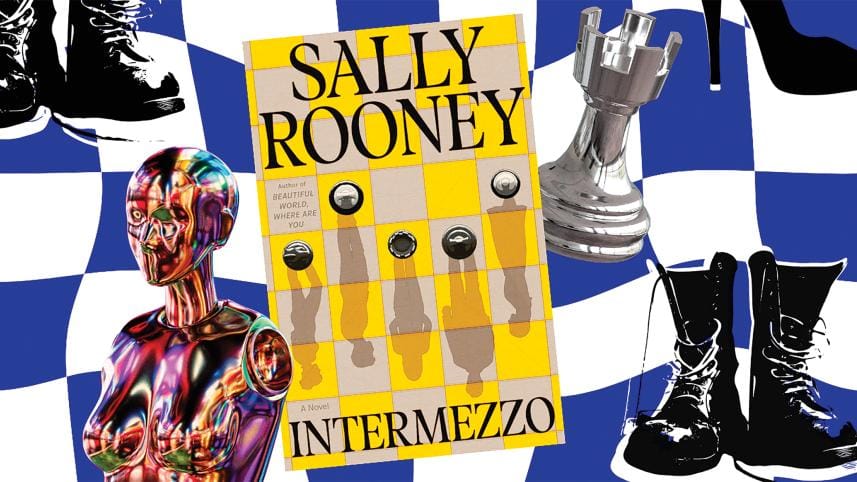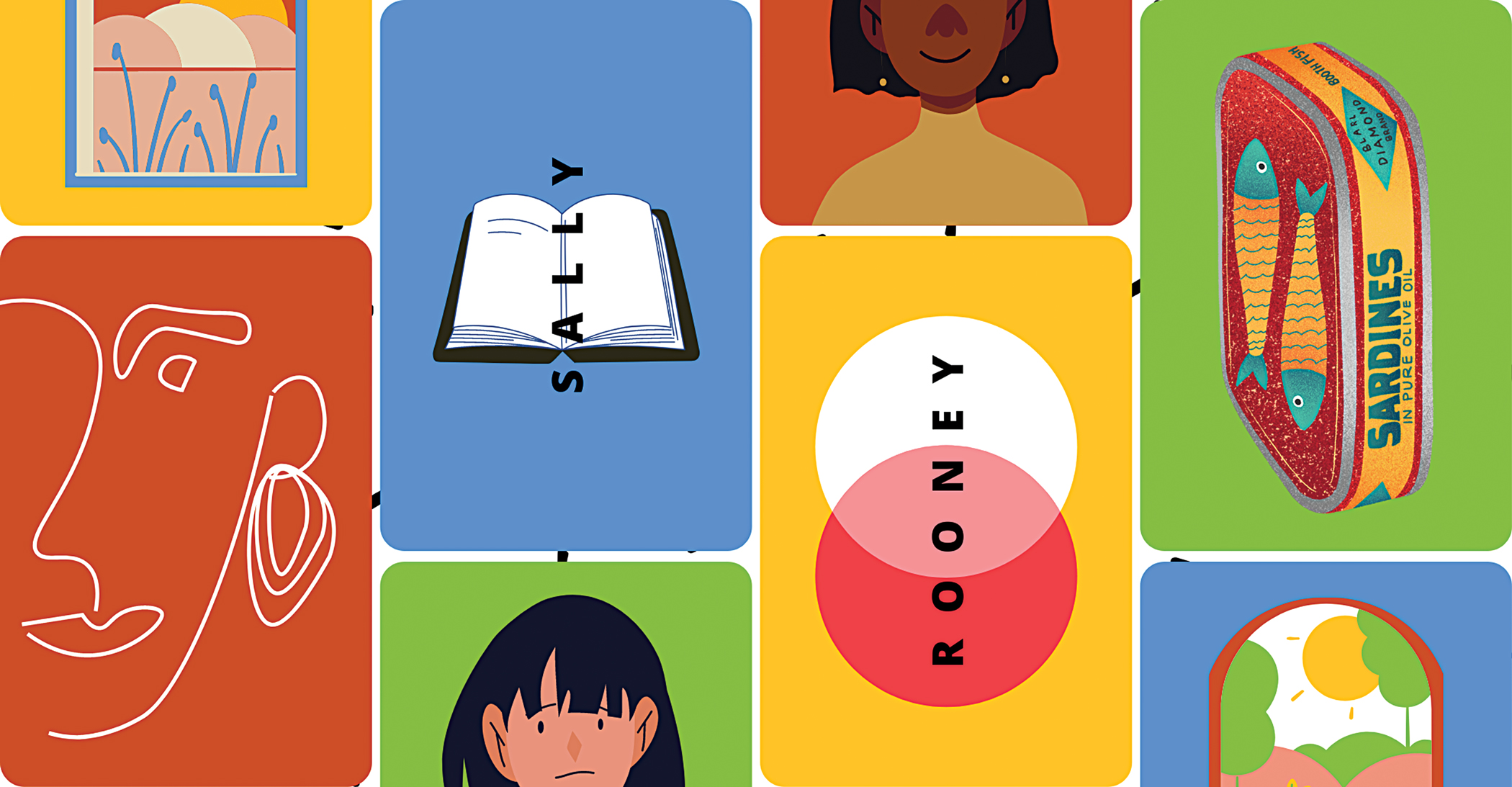I love you; it’s ruining my life

Someone in a chat group somewhere called Sally Rooney the 'Taylor Swift' of the literary world, and now I cannot unsee it. Young, beautiful white women telling stories from a white, relatively privileged perspective, crafting worlds populated almost exclusively by beautiful people, and yet managing to transcend borders of race, age and gender to achieve widespread appeal in a way that's almost magical. Just as I have mixed feelings about Ms Swift, everything Ms Rooney has written has had me ugly crying. Yet, I'm never not going to reach for the next thing she brings out.
Intermezzo is Sally Rooney's fourth novel; it revolves around two estranged brothers of Polish descent who have just lost their father, an event that strains their already frayed relationship. Grappling with grief, they medicate themselves with unconventional romances. Peter, the elder, is in his 30s and a successful lawyer. He finds himself torn between Sylvia—the untouchable love of his life—and Naomi—his much younger plaything, for whom he's beginning to catch feelings. He runs from his feelings by shuttling between the two women and drowning the in-betweens in work, alcohol and drugs. Ivan, the younger, is in his 20s and a socially awkward chess prodigy—written almost like he's on the autism spectrum, although this isn't explicit anywhere in the novel. He meets and falls for Margaret, a much-older woman who is "technically" still married to the town drunkard.
The way Rooney seamlessly folds in age-old questions and ideas within the reality of our current, often hopeless world makes her the significant writer that she is.
Like the pattern of a chessboard, the narrative structure alternates the perspectives of each major character with each chapter—mostly Peter and Ivan—although, surprisingly enough, Margaret gets a few chapters of her own. While occasionally speaking to one another, the stories of these characters very rarely intersect. But 'intermezzo' itself is an in-between move which forces its players to respond. It's symbolic of the way death repositions a life and grief unsettles love, and that's pretty much what the novel explores. While the romantic tangles, the messy friendships, and the minefields of parent-child relationships that characterise Rooney's other works are present, this particular novel is a little bit of a departure from her usual style. Here, she puts the brothers front and centre, pitting Peter's hypocritical condescension against Ivan's resentment and utter disdain. Throbbing beneath the surface of this tension is a well of love, and it would take a stone-cold sociopath not to weep at the book's emotional climax.
Those familiar with Rooney's earlier works will note the increased confidence in this one, the ease with which she merges her complex themes and issues—from women's health, to mental health, to climate anxiety, to Covid scares—with some of the most mundane scenarios. The prose changes with the perspective: Peter thinks in short bursts and phrases, almost like a list, while Ivan has a cool, calm, logical exposition. Margaret's chapters have long, emotional and introspective sentences. The author is a master of scenes, drawing each one out in lush detail, with great economy of words, filling space normally reserved for propulsive action, instead with a variety of ideas, conversations and themes, or as Margaret imagines halfway through the novel: "more life".
The way Rooney seamlessly folds in age-old questions and ideas within the reality of our current, often hopeless world makes her the significant writer that she is. And if I may jump back on the Taylor Swift parallel, all of the characters in her novels so far feature young adults figuring out the desires, dreams, and people that compose their respective lives (much like Rooney's main readership, or the Swifties' core demographic). Peter, Ivan, and Margaret may be positioned in specific and unique scenarios, yet their feelings will resonate with many readers the way Swift's songs, as hyperbolic as her imagery may often be, still hit you in the feels when you least expect them to. References to topics explored in her preceding books also show how Rooney is in conversation with herself and her past writing, and how she grows and evolves as her characters do, much like Ms Swift revisiting her old hits in her 'Taylor's Version' drops. It's not a stretch to imagine that the ongoing success of both artists hinges on continuing to capture with compassion the ways in which we all respond, grieve, and grow with each new day.
Intermezzo has received favourable reviews in general, with many calling it the "perfect novel", but I actually have a peeve—it's that some of the secondary characters feel not fully realised. Naomi in particular, is built on the Manic Pixie Dream Girl trope, and while the complications of Sylvia's health issues, and their impact on her relationship with Peter, are treated with non-sensational attention, the lack of specificity at times feels like a jarring blind spot. Similarly, the brothers' mother, when she makes an appearance, isn't fleshed out enough.
Minor quibbles aside, Sally Rooney has been going from strength to strength with each successive book, and this, her latest, is a real triumph.
Sabrina Fatma Ahmad is a writer, journalist, and the founder of Sehri Tales.



 For all latest news, follow The Daily Star's Google News channel.
For all latest news, follow The Daily Star's Google News channel. 
Comments